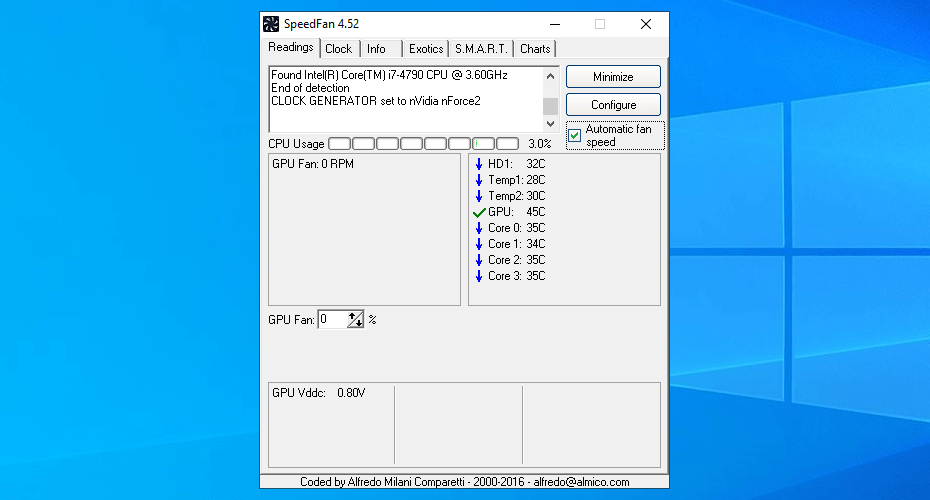

Tried removing drivers (both gaming and studio), directly in Windows or with DDU, all the same. MSI Afterburner, HWinfo, Speedfan, FanControl, etc.). Tested several common applications for fan sensor info or control and none work. What my pc got was the nasty visualbee infection. Fans start blowing at 100 speed at some random point in time. It's definitely not as you describe, that is, just a warning but no bad effects.

Maybe I clicked on a different link, though. Now, to figure out how to shut up my noisy CPU fan! My NOD32 got upset with the Core Temp download (I ignored it) but SpeedFan downloaded without a virus warning. And I don't use the NOD32 and sometime the antivirus software will give some warning, but in those site you just ignore the warning if you got one.Ĭore temp: http /Speedfan: http /Cin, thank you so much: those links worked great, I've downloaded both programs without incident. Examples are "seek error rate" or "calibration retry count." In this way, you can also use SpeedFan to identify hard drives that could cause problems in the future.I use those software and I did download from the sites in the link. SpeedFan also monitors quite a few hard disk conditions. For example, SpeedFan can send an email or run a program if the CPU has reached a certain temperature. What is more interesting is the tool's ability to inform you or take measures when certain events occur. The tool enables you to change other settings of your motherboard, such as the CPU clock, but I would be very cautious with such features, because it is possible to destroy computer components this way. You can also use SpeedFan to adjust your fan speed, if your motherboard supports it. Monitoring the hard disk temperature only worked after I started the tool as administrator. The optimal temperature range depends on your specific hardware. Measuring the voltages and fan speed didn't work on my Dell laptop using Vista 圆4, even though, SpeedFan officially supports 64-bit systems with signed drivers. You can use a software tool like HWMonitor, SpeedFan, or Core Temp to monitor the temperature and fan speed of your PC.


 0 kommentar(er)
0 kommentar(er)
